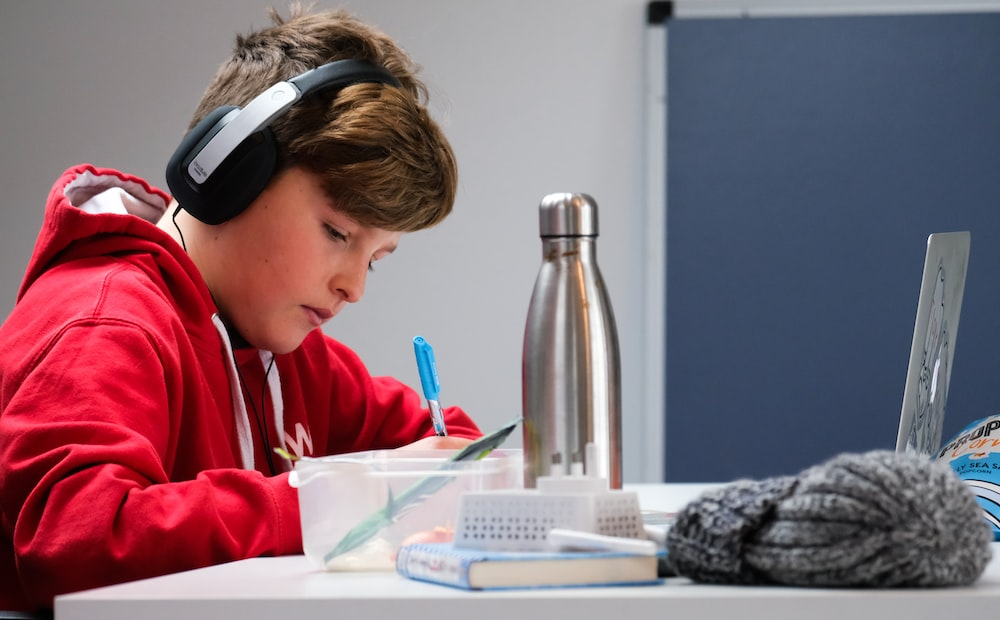Academic growth has always been considered the be-all and end-all of the scholastic journey. Modern-day education, on the other hand, is significantly more kaleidoscopic.
Instead of simply focusing on academic growth, educators and teachers are also paying close attention to personal, social, moral, ethical, entrepreneurial, technological, and financial growth.
Students are exposed to a wider set of ideas, concepts, and topics. This helps broaden their horizons and paves the way for greater professional growth.
In this article, we’ll offer a closer look at five entrepreneurial skills every student should possess in 2023. If you’re not actively building these skills in students, change your curriculum until you check these boxes off the list. Let’s begin!
1. Self-Awareness & Self-Esteem
Self-awareness and self-esteem are two of the most important entrepreneurial skills for students in 2023.
Students cannot think outside the box and innovate without a good understanding of their thoughts, emotions, feelings, actions, and behavior. They must possess the ability to understand what makes them who they are.
In addition, they must have confidence and faith in themselves. High self-esteem helps students take chances with confidence and clarity. Their decision-making is crystal-clear, not hazy and doubtful.
Recommended Read: SEL for Students: Self-Awareness and Self-Management
2. Problem-Solving
Problem-solving skills go a long way in helping students develop an entrepreneurial mindset. Good entrepreneurship is contingent on the ability to preempt complex problems and solve them once they arise.
Students must learn the importance of solving problems with patience and confidence. When problems arise, students often panic. This is a natural response; their fight or flight mode is activated.
As a critical entrepreneurship skill, problem-solving prowess helps students navigate difficult scenarios and situations without letting the pressure get to them. Instead, they rise to the occasion and get back on track.
3. Innovation
Innovation is the future. In 2023, the competition is at an all-time high within every industry. Businesses can only make it to the top when they think outside the box, innovate, and wow their audience.
When students are taught how to become innovative thinkers and leaders from a young age, they build on this skill and carry it into their professional life. They learn how to push conventional boundaries and develop new ideas, concepts, and strategies that benefit society in unique ways.
Innovation must be embraced in education in 2023. It equips students with the tools they need to overcome professional hurdles in the future and bring about positive change.
Recommended Read: 3 Kidpreneurs Everyone Can Learn From
4. Curiosity

Children are naturally curious. However, as they get older, their instinctive thirst for learning about the world decreases. The spark of curiosity must remain ignited for as long as possible.
Curiosity helps students dive deeper into topics that appeal to them. The learning process never ends; it’s sustained throughout a child’s schooling years and future career span.
How can educators help students maintain a high level of curiosity? By giving them the freedom, they want to explore their interests.
In many cases, students are forced to partake in activities that don’t appeal to them. This is necessary to a certain extent. When students are opposed to certain topics, they inadvertently hold themselves back from discovering their interests.
However, once they’ve established that something doesn’t appeal to them, they shouldn’t be continually pushed in that direction. Instead, they should be encouraged to explore the avenues that do excite them.
This is an excellent way to build curiosity in students. For instance, if a student has an affinity for English, they should be encouraged to try their hand at creative writing, declamation, the Spelling Bee, story writing, poetry, and the like.
The deeper they’re pushed into these avenues, the greater their curiosity. Since they have a natural interest in these topics, they’ll dive deeper into them and explore new facets. This process paves the way for innovation, specialization, and entrepreneurship.
If a student isn’t interested in, let’s say, Chemistry, they should be encouraged to focus on other topics that they gravitate towards. This isn’t to say that the subject they dislike isn’t important; it is. However, they shouldn’t be forced to keep heading in that direction. If this is done, students can easily lose interest, stagnate academically, and lose their natural spark for curiosity.
5. Resilience
As one of the most critical but overlooked entrepreneurial skills, resilience helps students realize that there’s nothing wrong with failing. Entrepreneurship is all about taking risks. If risks aren’t taken, the chance of stumbling upon massive rewards is nil. Students learn how to build themselves up and keep going in the face of adversity.
Recommended Read: Unpacking the Importance of Entrepreneurship for Kids
About the Author
The author is an education specialist at COMPUCHILD, an entrepreneurial STEAM-focused children’s education franchise. COMPUCHILD’s lessons are powered by science, technology, finance, business, entrepreneurship, and ethics. Their unique approach helps students become multi-faceted learners and excel in their professional life.
They provide after-school programs at elementary schools, child care centers, and community centers across the US and Canada. Educational entrepreneurs who are interested in sparking the light of knowledge, creativity, and innovation in students can apply to become a franchise owner online.


